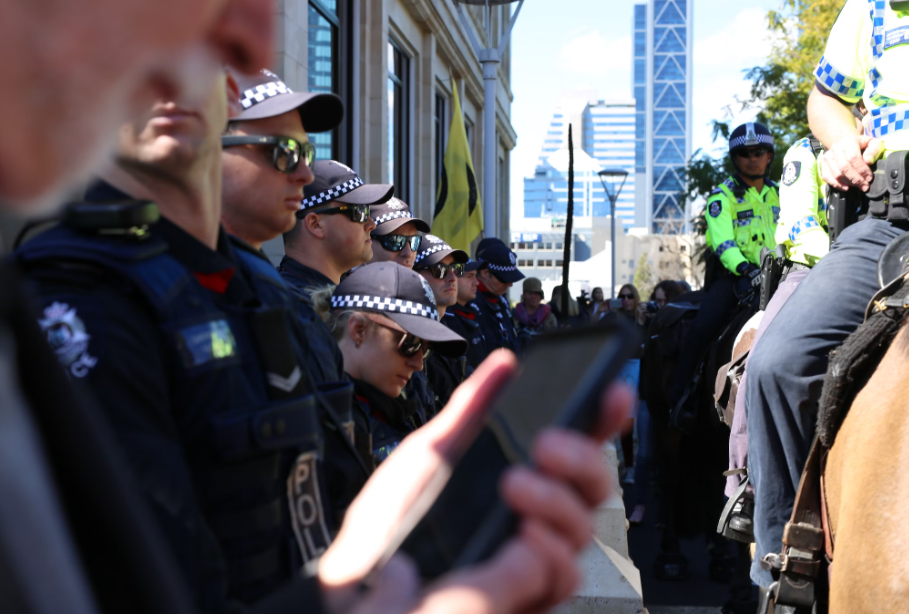 Author: Jasmine Burrows, Progressive Legal
Author: Jasmine Burrows, Progressive Legal

Rayney v The State of Western Australia [No 4] [2022] WASCA 44

Facts
In 2008, the Appellant, Rayney, initiated legal proceedings claiming that the Respondent, the government of Western Australia, had made defamatory statements and harmed his reputation. This was due to Detective Senior Sergeant Jack Lee (Lee) speaking at a press conference in 2007 where he called Rayney the main and only suspect in the investigation of his wife’s murder.
Before the accusations became known to the public, Rayney had a successful career as a barrister and worked in different government agencies. He argued that the accusations hurt his legal career by harming his reputation and causing him to lose a significant amount of money.
In 2010, Lee once again publicly affirmed that Rayney was the primary suspect for his wife’s murder and proceeded to arrest and charge Rayney with either the murder or alternatively, the manslaughter of his wife.
In 2012, Rayney faced accusations of breaking the law by recording phone calls with his wife. However, he was later found not guilty of these charges. Rayney was also accused of acting unethically as a professional by lying under oath. This led to him losing his ability to practice as a lawyer for four years.
In 2016, Rayney eventually reversed the decision that took away his practising certificate. Despite these legal battles, in 2020, Rayney was ultimately removed from the list of approved lawyers, meaning he could no longer practice law.
At first instance in 2017, Chaney J found that the statements at the press conference by Lee suggested Rayney had killed his wife. Chaney J awarded Rayney $846,180.82 AUD for the emotional harm caused and $1,777,235 AUD for the money he couldn’t earn during the time between the harmful statements and when Rayney was charged with murder.
Chaney J ruled that Lee did not have a good reason to suspect Rayney of murder at the 2007 press conference, but still chose to provide a lot of detail about why he was suspicious. This made it seem like the suspicion was well-founded.
This included providing statements that were not accurate, like saying the murder happened in Rayney’s family home which had not been proved, and suggesting that Rayney might confess that day, even though the police interview with Rayney was already over.
Rayney was awarded significant damages because the false accusations seriously damaged his reputation and caused him a lot of emotional pain. Chaney J acknowledged that the damage was very immense and had a big impact on Rayney’s life. The reputational damage was so severe that it continued affecting him even after he was eventually proven innocent for murder in 2012.
Rayney was also awarded aggravated damages because Lee acted in an unreasonable way during the 2007 press conference. He made false and damaging accusations and was careless in his choice of words. His failure to apologise and his further accusatory statements in 2010 publicly indicated he still thought Rayney was guilty.
However, when it came to deciding how much money Rayney should receive for the income he lost, Rayney argued that he should receive around $10.7 million for the years 2010 to 2012 when he couldn’t work as a barrister, and then again for the years 2016 to 2018 after he was allowed to practice law again but faced professional misconduct accusations.
Chaney J disagreed with Rayney’s argument. He stated that the harmful statements only affected Rayney’s income for three years, from September 2007 when the damaging comments were made, until December 2010 when he was charged with murder. Chaney J believed that any losses in income after that time were due to other reasons.
He mentioned that the charges of murder and phone charges, as well as the attention they received in the media, likely made lawyers less willing to hire Rayney.
Rayney appealed the decision in an attempt to obtain a higher award of damages for economic loss. He also claimed that he should be awarded interest on damages for economic loss.
Issues
Was Rayney entitled to a higher award of damages for economic loss?
Was Rayney entitled to receiving interest on damages for economic loss?
Decision
The Court rejected Rayney’s claim for increased damages.
The Court awarded Rayney interest in the amount of $121 831 AUD.
Reasoning
The Court of Appeal agreed with Chaney J’s opinion that the harm Rayney experienced after December 2010 were causally connected to the defamatory statements, but financial loss should be examined differently.
The Court of Appeal believed that Justice Chaney was correct in using common sense to decide if the defamatory statements caused the harm, considering the specific details of the case. The Court mentioned that after December 2010, Rayney had to face a trial for his wife’s murder and had limitations placed on his legal work. The Court thought these events broke the chain of causation between the defamatory statements and Rayney’s ability to earn money as a lawyer.
The Court of Appeal concluded that the defamatory statements were not a significant reason for Rayney’s reduced work after 2010. Because of this, they rejected Rayney’s appeal.
The Court of Appeal also criticised Rayney’s evidence for the damages he claimed after 2010. The Court stated that Rayney’s proof lacked details and didn’t clearly show that the defamatory statements were the main reason for his financial problems. For instance, many statements from witnesses said that lawyers were not willing to hire Rayney during that time.
However, there wasn’t any proof from an actual lawyer that the defamatory statements were the main reason. It wasn’t clear if the defamatory statements or other well-known issues were responsible for this.
Rayney also argued that he wasn’t fairly compensated for the money he lost between September 2007 and December 2010 because he was only awarded simple interest starting from the end of that period.
The Court of Appeal agreed that the standard way of calculating interest over the period when the loss happened was more appropriate. Following this method, Rayney was awarded an extra $121,831.
Need Defamation Help?
Please get in touch with us today via phone or the contact form on this page.


